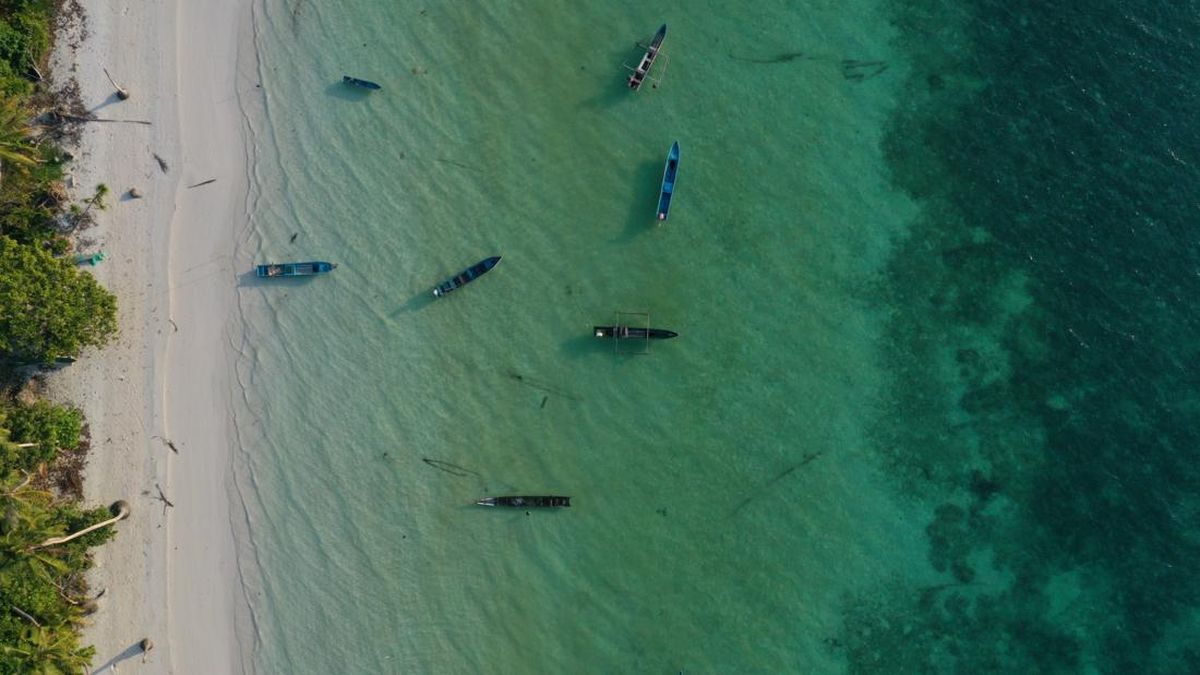The African Union declared 2025 to be the “Year of Justice for Africans and People of African Descent through Reparations”. The African Court on Human and Peoples’ Rights has an opportunity to make that more than just a slogan, as it considers the current request for an advisory opinion before it, on states’ human rights obligations in the context of climate change. It has an opportunity to issue a landmark opinion affirming the link between colonialism and the harms of climate change to people(s) across the continent. Such an opinion would mark a major step forward from the International Court of Justice and in Africa’s fight for reparative justice.
On July 30, 2025, Amnesty International published a report recounting how, during the French colonial era in Madagascar, authorities deliberately unleashed harmful, genetically manipulated cochineal parasites across some 40,000 hectares (98,850 acres) of a drought-resilient vegetation in the Androy region in Madagascar’s deep South. Between 1924 and 1929, the parasites destroyed roughly 100km (62 miles) of vegetation cover each year.
This was not a minor ecological loss. The vegetation had sustained the Antandroy people for generations, providing food and helping to preserve groundwater through chronic droughts. Its destruction erased a vital natural defence system against those droughts. More than a century later, the destruction has left the Antandroy people exposed to recurring mass hunger, displacement, and death whenever drought strikes.
Furthermore, Madagascar’s droughts are being intensified by human-induced climate change, driven largely by high-income historically high emitting countries, such as France – the very colonial power that left the Antandroy people vulnerable.
When science leads and politics lags
The scientific link between colonialism and climate vulnerability has long been established. In 2022, the Intergovernmental Panel on Climate Change (IPCC), which advises the United Nations on the science related to climate change, highlighted not only how colonialism contributed to the climate crisis itself but also how its enduring harms have left many communities in former colonies more vulnerable to climate effects, such as droughts, floods, cyclones and rising sea levels.
Effective climate action needs more than science; it also requires political backing for states, particularly those with greater historic responsibility for climate change, to act on mitigation, adaptation and financing strategies. When this doesn’t happen, countries with minimal historical responsibility who are suffering the most from climate change have no option but to seek clarity and accountability through a world court, in this case, the International Court of Justice (ICJ). The ICJ has the capacity to influence political processes. The ICJ, in particular, can lend global legitimacy to scientific evidence. Indeed, the ICJ has considerable moral and persuasive authority, often shaping the behaviour of states on the international political stage.
The opportunity for the ICJ to exert this influence arrived when in March 2023 Vanuatu, itself a former colony of both France and the United Kingdom, rallied the UN General Assembly to request an ICJ advisory opinion on states’ legal obligations regarding climate change. Formerly colonised nations in Africa and elsewhere joined the effort, many explicitly highlighting how colonial harms and climate injustices are interconnected.
When the ICJ delivered its opinion in July 2025, there was a glaring omission. The word “colonialism” appeared nowhere in relation to climate change, neither in the main opinion nor in the 12 separate opinions and declarations issued by its judges. The ICJ also sidestepped a critical question: how far back in time can claims for climate obligations reach? This question is crucial, because former colonial powers often claim that colonialism was not prohibited under international law when it was practised and, therefore, no legal obligation to provide reparations exists. They also often defend their role in causing climate change by arguing that they were unaware of the harm and faced no legal limits on greenhouse gas emissions until recently.
Customary international law shatters the colonial defence
Despite its regrettable silence on the question of colonialism, the ICJ offered some reassurances to countries that are bearing the combined consequences of colonialism and climate change by affirming that states’ climate change obligations are not confined to climate treaties. They also flow from customary international law, which dictates that a state’s responsibility can extend into the present if a wrongful act continues to affect the enjoyment of human rights, regardless of when that act originally occurred.
Engaging customary international law is significant because it reshapes the question that any Court ought to ask about colonial climate legacies. In this context, the relevant question is not whether states can be held accountable for the intertwined impacts of colonialism and climate change. Nor is it how far back we should look to assign responsibility for greenhouse gas emissions, which linger in the atmosphere for centuries. The question is: are harms rooted in the colonial era, including those that shape climate vulnerability, causing human rights violations today?
The simple answer is yes. The greenhouse gases now heating our planet and fuelling a cascade of rights violations have been trapped in the atmosphere for generations. They are the direct legacy of the fossil fuel burning that powered the industrial rise of former colonial powers since the 1750s and their post World War I & II economic recovery. In Madagascar, the French colonial administration’s destruction of the drought-resilient vegetation that had long sustained the Antandroy people stripped them of their natural defence against recurring droughts. This forced them into dependence and cheap labour within the colonial cash-crop economy. All this helped expand the forging of Europe’s economic paths and markets, which were powered by the burning of fossil fuels, releasing unprecedented quantities of greenhouse gases, which caused climate change.
The ICJ’s half measure: Opening the door, then closing it
By affirming that customary international law can ground claims for climate-related reparations, the ICJ appeared to open the door for climate demands tied to colonial harms. Yet, in the same opinion, the ICJ reinforced one of the very arguments long used by those who benefited from colonialism to reject responsibility.
The ICJ stated that full reparation — through restitution, compensation or satisfaction — is possible only when a “sufficiently direct and certain causal link” can be proven between the wrongful act and the injury. But making such a definitive link between innumerable acts of colonial violence and the impacts they had in exacerbating climate-change vulnerability is nearly impossible.
The requirement of such a definitive link as a precondition for colonial reparations, without qualifying how it could practically work for colonialism and climate change impacts, provides cover to countries like France. In Madagascar’s case, for instance, the French government could easily argue: “It has been a century since the colonial destruction of drought-resistant vegetation, and factors like population growth have played a role and the act of greenhouse gas emissions and destruction of ecosystems was not regarded as a violation. How can France be held legally responsible and realistically be expected to quantify reparations today?” As UN experts have observed, “the greatest barrier to reparations for colonialism and slavery is that the principal beneficiaries of both lack the political will and moral courage to make them a reality.”
Will the African court echo the ICJ’s silence, or break it?
Since May 2025, the African Court on Human and Peoples’ Rights has been reviewing a request for an advisory opinion on the human and peoples’ rights obligations of African states in the context of climate change. This is more than a procedural exercise. The request highlights the relationship between climate change and colonialism – a point that human rights actors intend to emphasise in their submissions before the court.
This is therefore a chance for the Court to articulate what the ICJ would not: that the fight for climate justice is inextricably linked with Africa’s fight for reparative justice. Such a stance would lay bare the plight of those still suffering the intersecting harms of colonialism and climate change such as the Antandroy. It would contribute to breathing life into the Year of Reparations and align with the African Commission’s 2022 Resolution on Africa’s Reparations Agenda, which provides the African Court a mechanism through which to push African states to pursue justice for the trade and trafficking of enslaved Africans, colonialism and colonial crimes, and racial segregation. The possibilities remain open. It may also encourage them to return to the ICJ to give the world court an opportunity to redeem itself.
The views expressed in this article are the authors’ own and do not necessarily reflect Al Jazeera’s editorial policy.

 1 month ago
11
1 month ago
11














































